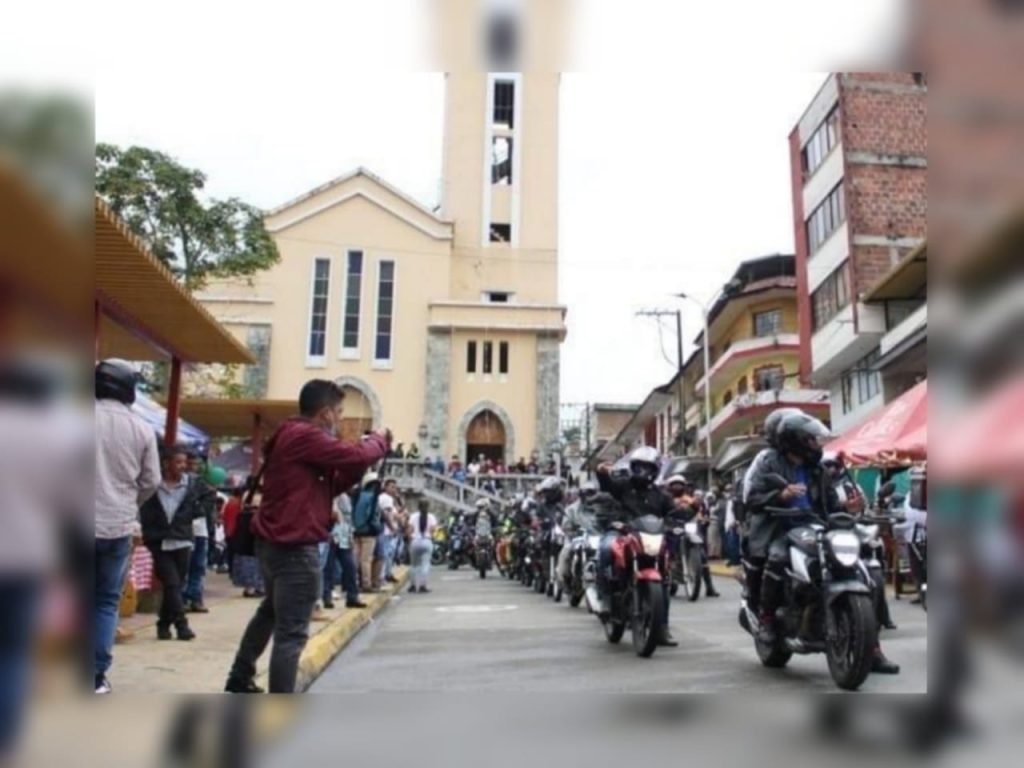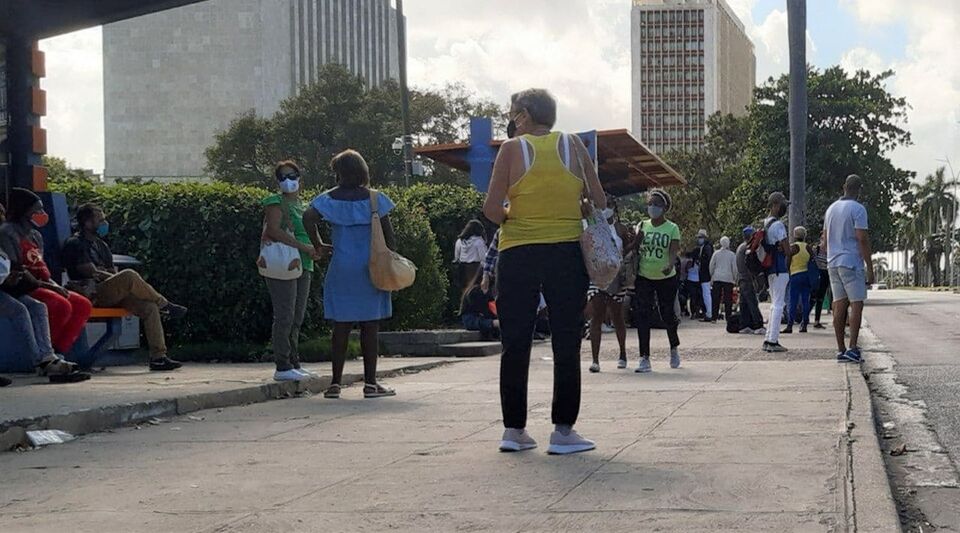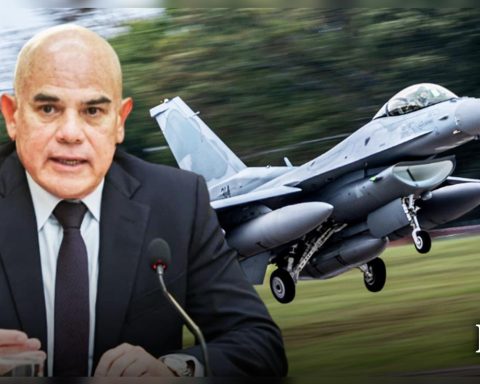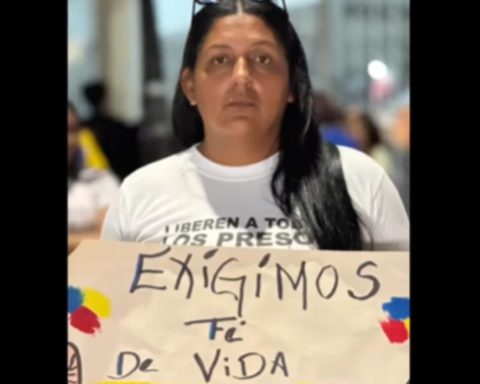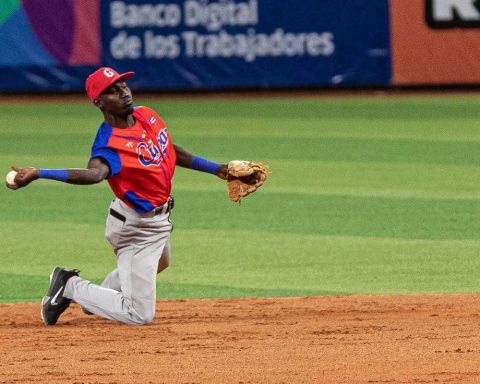
For Claudio Fuentes, political scientist at the UDP, “although it is true that the debate was widely seen on open television, on the networks and also heard on the radio, in my opinion, it should not tilt the needle in favor of one or the other. another, because there were no great differences between one or the other candidate ”.
The meeting took place after the debate through Archi, who left installed the subject of the accusation – already clarified – of harassment and that José Antonio Kast launched Gabriel Boric, as part of his recognized script that seeks to install half truths or, of forehead, fake news, in pursuit of weakening his rival in the last stretch of the road. A script that the world has already realized, after the elections that led to the triumph of Donald Trump in the United States.
For Gabriel Boric’s command, that was a lesson learned, and it concluded that the candidate of Approve Dignity could not “step on the stick” again to enter to play fully on the court of the representative of the right, recognized as a type skilled in such instances, within which framework he has not hesitated to deploy all the artillery and who carries with him no less than fake news.
On this occasion, and after a relentless start -where both sought to expose the flanks that their opponent is dragging-, the scenario seemed to be repeating itself when the insinuation that Kast had installed and that he sought to question the non-consumption of Boric drugs. Once the issue was mentioned, the deputy took a urine test with which he sought to quickly close a debate easily spread on social networks, less than a week before the presidential elections. This, despite the fact that different representatives of the right insisted, on this occasion, that the urine test has less scope than a hair test, in an attempt to extend the strategy of the script displayed.
That will probably be the image that will remain in the retina of the last face-to-face meeting prior to December 19, an instance to which both flag-bearers arrive with a lower percentage of votes than expected and with a little significant distance, but that left Kast with 28% of the preferences, versus 25.7% of Gabriel Boric, this in a universe of voters that reaches a little less than half of the totality of the register.
The soapy of their responses to the innumerable changes that the programs of both sides have undergone, has evidenced the need to capture the vote of the center, which was more than clear when they were consulted by their favorite presidents of the Chile’s history.
In the case of Gabriel Boric, a well-known Allendista, he first named the second government of former President Michelle Bachelet – with whom he met privately as soon as she touched national soil last Sunday – and, later, he referred to Eduardo Frei Montalva, to close with Salvador Allende, a sequence that months ago would have been totally the reverse.
In the case of the former UDI, he was not shy about appointing former President Patricio Aylwin, the same strategy used by the current President, Sebastián Piñera, and which at the time was rejected by Kast himself, who, through his social networks In 2017, he had published: “How times change. Now ‘the right’ puts Aylwin on the fringe and defends his legacy. What would Jaime Guzmán do / say?
One of the issues that bothered both was that of the AFPs. While the broad front changed his speech, which at one point aimed to end the system of pension fund administrators, now he said to put the people first, and that this will be a matter to discuss, reinforcing his message in terms of amounts committed to the lowest pensions. In the case of the representative of the Christian Social Front, when asked if he had at least one questioning of the system, he had an uncomfortable silence that he did not know how to resolve.
For Marco Moreno, director of the Faculty of Economics, Government and Communications of the Central University, “the gestural language of the candidates showed a Gabriel Boric much more energetic, with much more desire to mark a position in the debate, and a José Antonio Kast although serene, he was sometimes tired and disoriented. This is obviously not enough, the debate as a whole, to be able to move the compass and lead voters to vote next Sunday. We will have to wait for what happens in the next five days to see if there are events that, during those five days, could generate a higher level of mobilization ”.
Known script (fake news)
“I have not lied at any time,” said Kast emphatically in the debate, where he was constantly questioned by Boric in the face of some statements made by the candidate of the right, trying to close down several of the flanks that his opponent opened during the campaign.
A libretto that is repeated in the communicational structure of José Antonio Kast is to try to install half-truths so that they are viralized and have the effect of dirtying his rival.
One of the clearest was about the realization of the Lollapalooza music festival, which will finally take place in Cerrillos. In the debate, JA Kast stated that the Municipality of Santiago, headed by Mayor Irací Hassler (PC), had “ideologically” canceled the event, “because they find that it is for skunks and capitalists”. The point was denied by the mayor herself on her Twitter, and also by Boric. Both recalled that its implementation in the commune was conditioned, first, to a consultation among the residents of Santiago for the use of public spaces, such as Parque O’Higgins.
Another false information given by the standard-bearer on the right was that TVN and Enap have reached blue numbers during the current government, “which never happened during the Concertación governments,” he said. In both cases, this statement is false. As confirmed by Fast Check CL, “from 2006 to 2007, TVN had a 37.2% increase in its profits. In the case of Enap, in 2002 it registered a 40% increase in profits compared to 2001. All in blue numbers ”.
A recurring theme that the candidate of the Christian Social Front brought up again is the presence of communist militants in ministries of a possible government of the representative of Approve Dignity, and especially in the case of Daniel Jadue, of whom he said that “He can become the Minister of the Interior.” However, this has been denied both by Boric himself and by the mayor of Recoleta, who has made it clear that he will remain at the head of said commune.
A complex issue for Kast, in each debate, has been that of his sayings about the LGTBIQ + community and trans people, where he was reminded that in columns he made in previous years he emphasized that the actress Daniela Vega “is a man”, without acknowledging his gender identity. About the LGTBIQ + community, he spoke in 2017 of a “gay dictatorship”, when in May of that year the Government illuminated the headquarters of the Executive with the colors of the rainbow. On the occasion, he wrote that “La Moneda surrenders to the gay dictatorship.” Unlike what he said last night in the debate, ensuring that he had referred to a “lobby gay ”.
He also spoke of a “health dictatorship”, in June of this year, regarding the quarantine sanitary measures that the Executive maintained due to the coronavirus pandemic.
Boric on Kast
Between addition and subtraction, analyst Claudio Fuentes stated that “if there is a winner, it was not a winner by knockout. If there was a winner, that was Gabriel Boric, mainly because Kast required going to the confrontation, required making a difference and, to my judgment, failed to do so in this debate. “
Marco Moreno was of a similar opinion, who pointed out that “I believe that the debate was again more favorable for Gabriel Boric than for José Antonio Kast, in terms of the energy displayed and put into the responses given to journalists.”
“I think that the solution of continuity, that is, how they go from one position to another on different issues, is better achieved in Gabriel Boric than in José Antonio Kast. That generates higher levels of trust. Secondly, I think that in some way What we also observe is that this is not a discussion about public policies necessarily, because they are not the topics that interest people, but rather it is still a choice about personalities, about life trajectories, about the biographies of the candidates, much more than on public policy proposals, and that was demonstrated in the debate, “he said.











